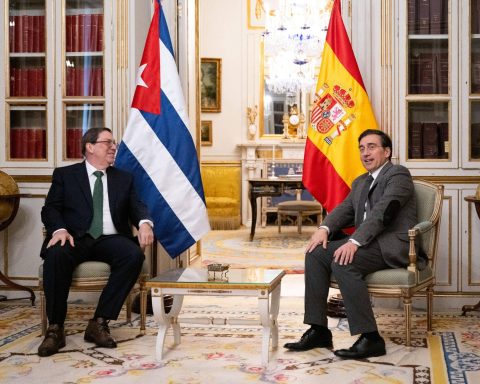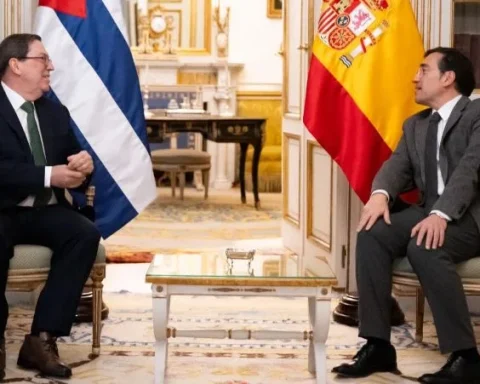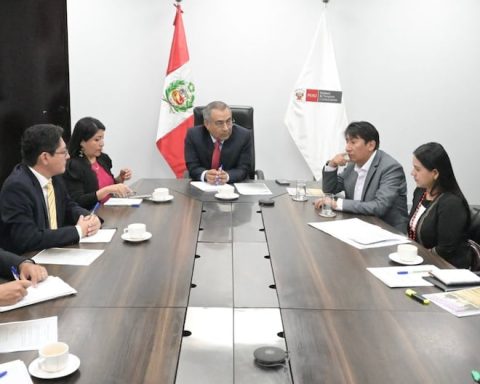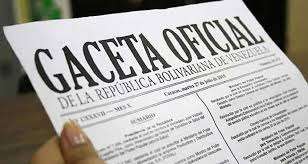The change that has been taking place before our eyes in communication (and the rest) occurs in a broad social context, to which politics responds and acts. It is not a mere technological change, access to information and communication technologies (ICTs), nor a topic in a certain economic modernization agenda, as some experts think, but a problem of political culture, and of the fundamental change in circumstances of its reproduction.
In terms of communication, it began by manifesting itself more than a decade ago in the dissolution of the border inside Outside. Before you have come to possess almost 7 million accounts and access to mobile data On their cell phones, as is the case now, Cubans in Cuba have maintained two-way channels with that “foreign”; since they have literally gone in and out of the country non-stop since 2013, they have coexisted with millions of visitors to the island, and they have had more than one relative or friend abroad, with whom they communicate like never before. Imagining them in a kind of Platonic cave has the quality of the unreal.
If you review the debate of ideas in the intellectual, academic and cultural field during these years, you will see that it covers an extended public sphere, in which “what happens here” is also instantly accessible “outside”. The quotation marks reflect that the very meaning of being outside+inside, inside+outside, reveals how much everything has been dislocated. Also the production of politics.
An example of this political dynamic: when public recognition of events and discourses generated “here” occurs as a rebound before the reaction “outside.” Although the rebound effect is not new, it is now at a dizzying pace, which not only contributes to the instantaneous propagation of events, to accelerating their life cycle, to making the present current, the current ephemeral, but also to reinforcing the outdated and defensive bias of national politics. And make it visible.
The worst thing about this acceleration of communication, however, is that it covers up or blurs the underlying lack of communication, which can be verified just by reading the dialogues on social networks.
This confusion in the larger sphere of civil society is also manifested when, let’s say, leaders and cadres are directed to open an account on Twitter, and say something through that horn every two or three days. Which shows how some defensive policies can be not only ineffective, but absurd.
Facebook has become a fence for roosters (and chickens), in which rudeness replaces argument; the exchange of qualifiers, the dialogue; the anger, the debate. While self-censorship becomes more and more ghostly, more anachronistic, old and new forms of opportunism emerge. As it occurs mainly in the field of civil society, this collateral damage is more toxic, politically speaking, than the incivility and the empire of the banal in the networks, which Eco was already mocking.
There is no way to understand Cuban politics without looking at what is happening in society, subject to a transformation that has taken place at a double pace since the 1990s.
By the way, some ephebocratic discourses, of which they assume the representation of all young people, undertake it against mentalities eighties (so they say), as if they were redeemed by brand of origin and year of harvest, from the embers in which theirs (their mentalities) were cooked.
In any case, eighties, nineties, two thousand windy, residents within and without, are real and effective parts of the same society.
It is the pressure of that really existing society that generates the challenges that politics has to face and channel in the best way. That best way, of course, would be to deal with the diversity of interests—some opposed and some perhaps irreconcilable—in ways that minimize conflict while not hopelessly losing the compass of something that, in the absence of a better definition, it is still called socialism. And that today definitely not everyone understands in the same way.
Going back to communication in a strict sense, the “costs” or “dangers” that were once attributed to the extension of the Internet have not been resolved, but they have been assumed.
It remains to take advantage of and apply its resources to the modernization of social, economic, and also political management. The main thing about electronic government is not the technological part but the political one, including the use of communication. Let’s say, not just getting in tune with ICTs, but embracing the new social and cultural fabric, including an expanded public sphere.
More evident now for everyone than a decade ago, when it could already be clearly distinguished, in this new sphere and social fabric, the ideological vibrators are not contained in the political discourse of the ideological institutions and apparatuses of the State, but have instead decentralized and diversified.
A few days ago I asked a panel of experts if, given the inequality between subjects and actors participating in the process of social communication, it was possible to conceive policies that encompass multiple communication practices and that promote integration between different fields, each one with their own problems and demands.
If it was not essential to found decentralized communicative practices, since society is not a centralized order, but a living organism, so that they could contribute to a more distributed, equitable, democratic social development. If communication policies were not required —not just one— that would contribute to the greater goals of the policy, in terms of representing the interests of the whole of society, and recognizing its particularities.
One of the panelists responded that “the design of decentralized communication policies cannot come from above, as its name indicates. Each medium and each organization, media or of another nature, including institutional and business, must design its own agenda”.
On the other hand, it is probable that many politicians (the new politicians, I say) have realized that the new situation does not respond to an adverse economic situation, or to the politicization of currents that become “problematic”, but to a structural change, corresponding to a new order, not treatable as a simple “deviation”; that is to say, as a national security problem, but eminently political, only treatable with the means of politics.
In other words, the change in mentality does not consist in admitting the role of the market and non-state agents in the economy, in taking charge of the new social actors, as modernization theory would do; but in looking at society in its complexity of highly differentiated and unequal social groups, colors, genders, territories. And in placing oneself in the face of dissent, within a political consensus that is already another, fundamentally heterogeneous and contradictory, as a natural ingredient of a different ajiaco, in which diverse social and cultural factors come together.
Within this new consensus is the questioning of the media system. The questioning has become a consensus structurally speaking, since it has become part of the premises of the debate above and below.
Although the issue of communication goes beyond the media, the stone guest in this debate it is the non-state media. Avoiding the discussion about them, as in the story of the naked king, is equivalent to refusing to recognize them, putting them all in the same bag and, in the long run, avoiding their differentiated understanding.
A few days ago, in the same panel I mentioned, a British journalist who writes for media outside of Cuba lamented how young journalist friends of his, frustrated by the lack of incentives and censorship in state media, were migrating to opposition media. . And he added: “Many of them are working for the anti-Castro press, which pays much better, I think that the Cuban State has no way to compete with the pay, and many are working in the press —for me wrongly called independent— because many times (I think that most of the time) is financed directly or indirectly by the United States. And I think there is a talent migration problem, and in part this problem exists because the journalistic training they received was so good that they feel very frustrated when it comes to working. If there were political will here to stop controlling journalists who are working for the State or are working in the public space, perhaps paradoxically there would be less space or less demand for propaganda that is financed by the United States”.
The judgment of the journalist, who has lived in Cuba for ten years, is not based on the National Television News, but on his own sources and arguments. I will not discuss here the nuances of his characterization; but I do want to specify that not all public media are official, and there are private media that do not align with a particular political tendency.
At the same time, calling church media independent, let’s say, makes no sense, because they don’t exist outside of those interests and institutional policies. And that, naturally, there are private media that have an anti-government agenda. Confusing them all reveals, at best, ignorance.
Before me are the most recent reports from the National Endowment for Democracy (NED), as well as Meridiam and other subcontracted institutions to finance anti-government media and organizations in Cuba. For me, however, the main differentiation criterion, beyond the origin of the financing, lies in the profile of these media.
Their style as media outlets is distinguished by the same sectarianism and dogmatism that they claim to criticize in the official press, by provocation, intolerance, extremism, the predominance of ideological disqualification, instead of dialogue and the balance of informative approaches. The same negativity pointed out before as a side effect of the networks and their permissiveness of paddock.
However, those who, oblivious to the recalcitrant anti-government agenda, critically debate our problems in a university classroom, a blog, a public or private media, a social organization, assuming the responsible role of loyal opposition, even within the ranks of the Revolution, are helping to create democratic spaces from below and foster a new political culture, an essential part of a new order.
Having said all of the above, I recognize that at no time before have we had a leadership capable of better dealing with the information-innovation-communication-power relationship. However, the inertia of a political style of decades weighs heavily.
Whatever their professions, the new generations of leaders have been raised in this style, corresponding to what Raúl Castro called the “old mentality”. The speeches of a dogmatic mentality, no matter if from the eighties or two thousand, lack the capacity to reproduce any kind of hegemony. Not the hegemony of an aged or ideal model, but one that allows the reconstruction of its political culture, with a new practice.
The classical division of labor prescribes politicians as the representatives of the people and intellectuals as bearers of critical consciousness. It is about training leaders intellectually more gifted and capable of dialogue, and intellectuals with a greater mastery of political problems.
If not, we will suffer the zipizape between authoritarians and snipers, which has contributed little to the culture of socialism, and in particular, to the formation of full citizenship.
Can leaders learn? Can we intellectuals contribute to this learning? Are we capable of educating ourselves, of going beyond the purely opinionated moment, the ancestral distrust, the ignorance about the usefulness of critical knowledge to direct and to act as citizens in the construction of a new public sphere and political space?
Sometimes I doubt it. But doubt is essential.














